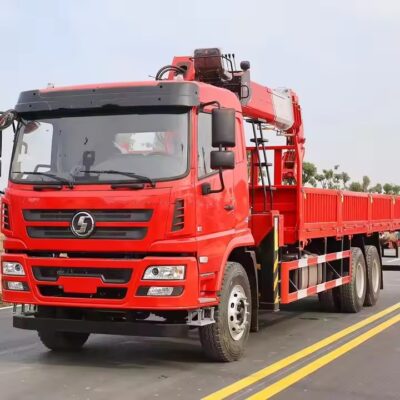Proper maintenance of a 구조차 트럭 is crucial to ensure its reliability and safety during operations. Here’s a detailed guide to maintaining a wrecker truck effectively:
Regular Inspection of Fasteners
Importance of Fastener Checks
- Vibration and Load Impact: The diesel engine’s operation can cause nuts and bolts to loosen due to vibration and uneven load distribution.
- Preventing Accidents: Regular inspection prevents traffic accidents caused by loose parts.
Inspection Routine
- Visual and Manual Checks: Conduct thorough visual inspections and manually check the tightness of all nuts and bolts.
- Critical Areas: Pay special attention to fasteners on critical components such as the chassis, towing apparatus, and engine mounts.
- Torque Specifications: Use a torque wrench to ensure fasteners are tightened according to the manufacturer’s specifications.
Lubrication of Bearings
Importance of Lubrication
- Bearing Longevity: Proper lubrication reduces friction and wear, extending the life of the bearings.
- Smooth Operation: Lubricated bearings ensure smooth and efficient operation of the truck.
Lubrication Routine
- Pre-Operation Check: Ensure all bearings are adequately lubricated before starting the vehicle.
- Regular Maintenance: Follow a scheduled maintenance plan for re-lubricating bearings as recommended by the manufacturer.
- Quality Lubricants: Use high-quality lubricants suitable for the specific types of bearings in the truck.
Engine Warm-Up
Warm-Up Procedure
- Engine Start-Up: Wait for the engine to start normally.
- Optimal Temperature: Allow the water temperature to reach 40 에게 50 degrees Celsius before beginning operations.
Avoiding Low-Speed Operation and Overloading
- Avoid Prolonged Idling: Prolonged low-speed operation can lead to incomplete combustion and carbon buildup.
- Prevent Overloading: Do not exceed the truck’s towing capacity to avoid undue stress on the engine and other components.
Consistent Supply of Essential Fluids
Cooling Water, 디젤, or Gasoline
- Constant Supply: Ensure a steady and timely supply of cooling water, 디젤, or gasoline to prevent operational issues.
- Fluid Levels: Regularly check and maintain appropriate levels of all essential fluids.
Impact of Fluid Interruption
- Engine Start-Up Issues: Interruptions can cause difficulty in starting the engine.
- Power Reduction and Poor Combustion: Insufficient fuel supply can lead to power loss and inefficient combustion.
- Increased Wear: Inadequate oil supply can cause poor lubrication, leading to increased wear of internal components.
- Overheating: Insufficient cooling water can cause the engine to overheat, reducing power and lifespan.
Engine Maintenance
Regular Engine Checks
- 일상적인 검사: Conduct regular engine inspections to identify any potential issues early.
- Oil and Filter Changes: Change engine oil and filters at recommended intervals to maintain optimal engine performance.
- Air Filter Maintenance: Keep air filters clean to ensure proper airflow and efficient combustion.
Break-In Period
Importance of Break-In
- Component Longevity: Proper break-in procedures help ensure the longevity and reliability of all components.
Break-In Procedure
- Follow Manufacturer’s Guidelines: Adhere strictly to the manufacturer’s break-in recommendations.
- Gradual Increase in Load: Gradually increase the load and operating speeds during the break-in period.
- Monitor Performance: Closely monitor the truck’s performance during this period to identify and address any issues early.
Additional Maintenance Tips
전기 시스템
- Battery Maintenance: Regularly check battery terminals and connections to ensure they are clean and secure.
- Lighting and Signals: Ensure all lights and signals are functioning correctly.
Tires and Brakes
- Tire Pressure and Tread: Regularly check tire pressure and tread depth to ensure safe operation.
- Brake Inspection: Frequently inspect brakes for wear and ensure they are functioning properly.
Safety Equipment
- Emergency Kit: Keep an emergency kit on board, including tools, spare parts, and first-aid supplies.
- Reflective Gear: Ensure all safety gear, including reflective vests and warning triangles, are in good condition and easily accessible.
By following these detailed maintenance practices, you can ensure the safety, 신뢰할 수 있음, and efficiency of your wrecker truck, thereby minimizing downtime and maximizing operational effectiveness.












